My Top 10 Canadian Films of 2023
As selected by Thom Ernst – Film Correspondent
(December 27, 2023 – Toronto, ON) The only issue with the top book, theatre, music, and film lists is that reading, seeing, and hearing everything is impossible. All top ten lists are limited by what the author has been exposed to.
There are plenty of Canadian films that go unseen. This top ten list reflects the movies I’ve seen and could miss some essential works.
The gaps in this list are movies like Sophie Dupuis’s Solo, the East Coast comedy Whose Yer’ Father, D.W. Waterson’s Backspot, Irena’s Vow, In Flames, Mr. Dressup: That Magic of Make Believe, The Queen of My Dreams, and Atom Egoyan’s Seven Veils.
With apologies to films that may well have landed on this list had I seen them, here are my top 10 Canadian Films of 2023.
By the way: These are in no specific order.
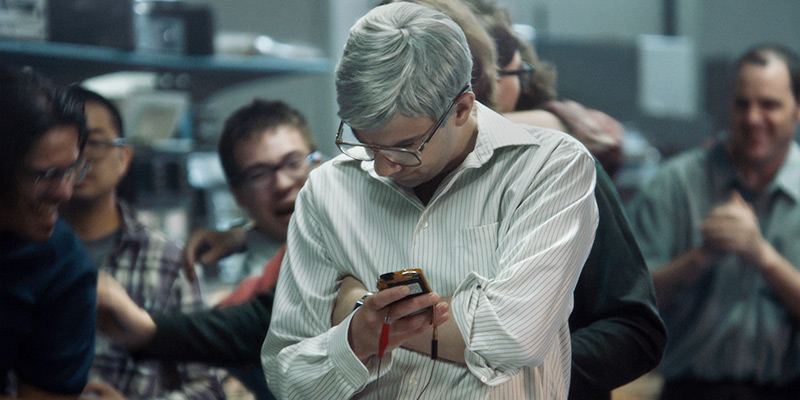
Matt Johnson’s factually inspired fiction might leave purists aghast at the liberties taken. Still, this story of the sharp rise eclipsed by an even stronger downfall of a real tech start-up is an engaging, often hilarious, and gripping tale of hope, smarts, business shenanigans, and failure. Johnson uses actual names; for some, that’s an indefensible argument for keeping things real. But Johnson rarely allows truth to get in the way of a great story, and Blackberry’s story is excellent. There is an element of Preston Sturges to Johnson where deep-pocket politics and backroom business deals are always on the cusp of comedy. Turn off what you know about Blackberry (looking at you, Waterloo, Ontario) and enjoy the ride. If Jim Balsille can be onboard with Glen Howerton’s bullish, head-first run into calamity, who are we to argue with a shift in accuracy?
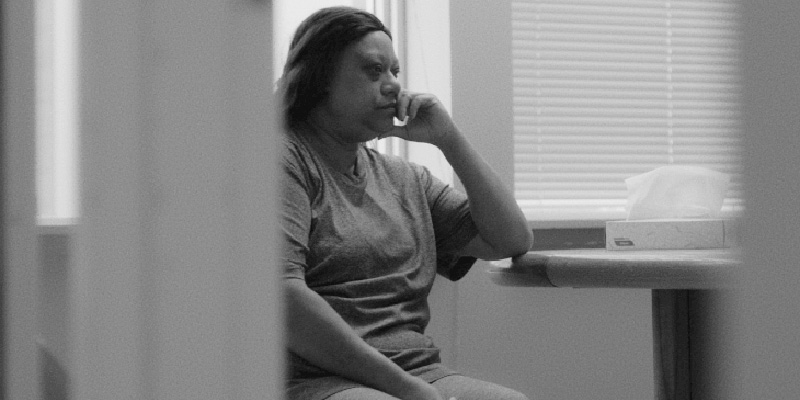
Like last year’s To Kill a Tiger, first-time director Sherien Barsoum’s Cynara is a gripping true crime story that is sensational without sensationalism. Not only is this a great story—and this film plays like it was scripted by the best writers in the industry—but it’s also a story that reveals huge pockets of failure in the Canadian judicial system. Barsoum leads us through the tale of a woman accused of killing her severely disabled child, 16-year-old Cynara, after claiming her home was invaded by two men. At first, viewers might not side with the film’s assertion of innocence. But the movie progresses with the court cases, the testimonies, the eyewitnesses, and evidence that has been conveniently pushed aside. Those who might roll their eyes at the idea that racism, profiling, and assumptions based on economics and class can still infiltrate the judicial system will find their rolling eyes opened.
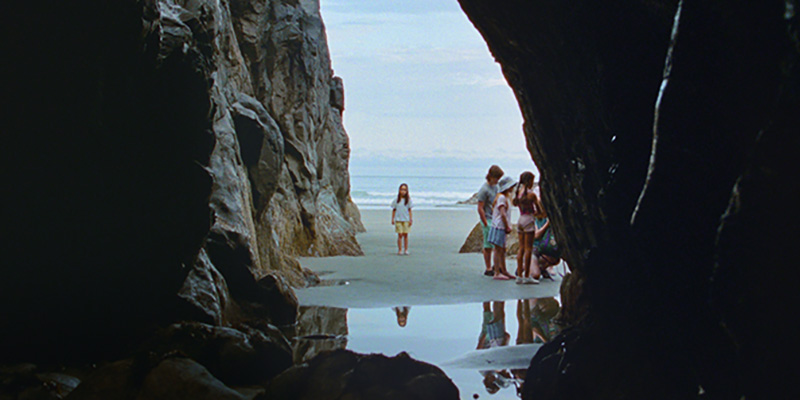
Judith (Ally Maki) is a Japanese Canadian woman dealing with the recent loss of her mother and the inconvenience of falling out of love with her husband, Steve (Luke Roberts). She takes the family, kids included, to a retreat. The hope, presumably, is to get much-needed rest from daily life’s stress and strengthen a crumbling relationship. While Judith and Steve, in equal amounts, attend and avoid therapy groups and stress-release exercises, the children are left to entertain themselves. Driven by disillusionment, frustration, and even emotional threats, the family wanders through a week that could see their family structure implode. Director Meredith Hama-Brown sculpts the story with the efficiency of calculated drama, taking the viewer to places expected and then tilting the narrative towards the unexpected.
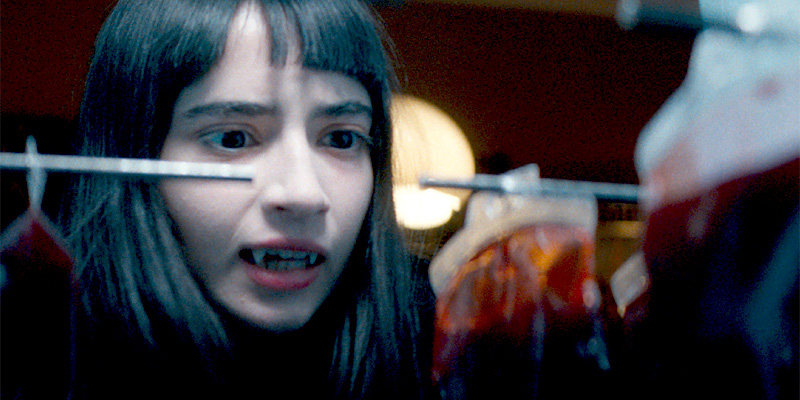
Humanist Vampire Seeking Consenting Suicidal Person
The title is clever, but the film is so much more. Everything you need to know about the movie is spelled on the marquee: Humanist Vampire Seeking Consenting Suicidal Person. A hit when it premieres at TIFF 2023 should have no less of a reception when in the general market. The story, slightly (but very slightly) reminiscent of the Burt Reynolds/Dom Deluise vehicle, The End, pairs a conscious-ridden vampire with a depressed young man. The needs of one seem ideally suited to meet the needs of the other, but plans, as most moviegoers know, often go awry. Director Ariane Louis-Seize hits the mark with this dark comedy.
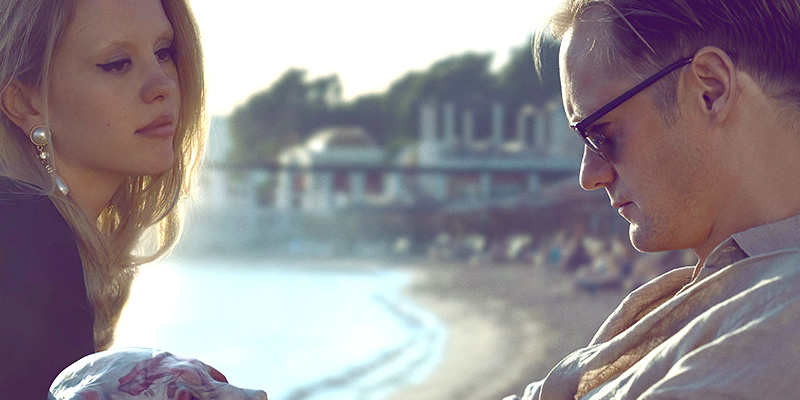
Brandon Cronenberg’s third film is Infinity Pool, which he nails. A vacation sci-fi horror thriller that moves so efficiently from start to end that it might take the viewer a moment or two to shake the sensation that they are not part of the descent from paradise into hell. As a horror film, Cronenberg utilizes the emotional and professional failings of an author, James, struggling with a second book. The twist in the familiar second-book syndrome is that the first was not a success, and perhaps its publication was a fluke. It’s the added stress further impacted by the writer’s problematic relationship with his wife, Em. John meets Gabi (Mia Goth), who takes the couple off the resort (a wealthy hideaway amidst extreme poverty) and into something unpleasant. The unpleasantness is expected as this is Brandon Cronenberg, and the film is a horror. But Infinity Pool, with its graphic depictions of sex, nudity, and violence, could easily have dissolved into xenophobia. Still, it tells the story with a balance of character intent and biases. This is arthouse vacation horror with more Spring Breakers (2012) vibe than Hostel (2005).
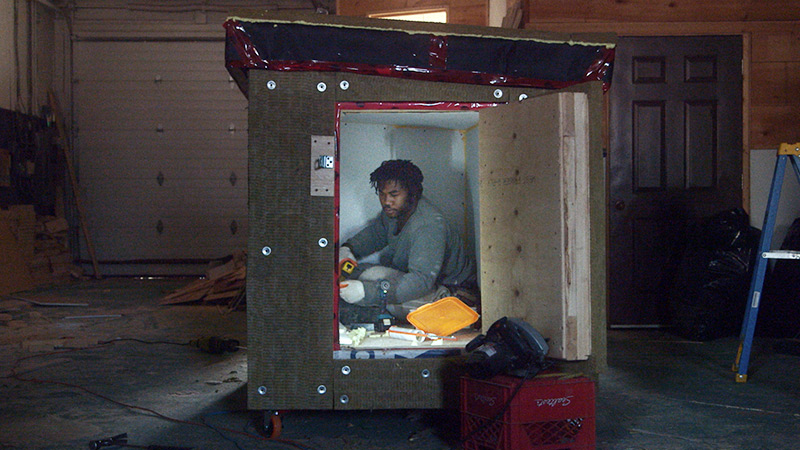
Director Zack Russell—who has a Jack Russell on his business logo—gives reason as to why cinema can do more than just pass the time. Someone Lives Here is a documentary that exposes the red tape and bylaws that work against a city’s most vulnerable, the homeless. Russell, a writer and television director, finds a story in a carpenter, Khaleel Seivwright. Seivwright took it upon himself to build small shelters for the homeless, a warm, safe place away from the elements and the inherent dangers of living on the streets. Seivwright’s initiative does not go unchallenged. While the homeless appreciate getting a protected night’s sleep, the city and many residents aren’t as understanding.
Zack focuses on the carpenter, a gracious man with an easy personality and a history that makes his project personal. The film avoids condescending to those in need. It even deals with people who oppose the small, single-person, sleeping room-only structures. Russell is clearly on the side of Seivwright, who watches as his work is destroyed by the city but leaves most of the decision-making to the audience. An essential film for everyone, particularly those who struggle with the conflicting extremes between protecting what they have (parks and a nice view) and the needs of others.
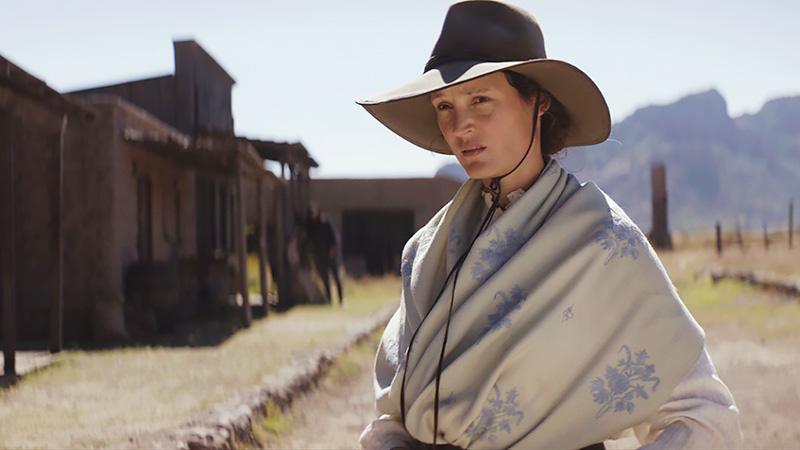
Hard to imagine what drives men like Viggo Mortensen, one of the more reliable actors in the industry, to consistently deliver strong performances, whether in epic actioners (Lord of the Rings) or art-house dramas (A History of Violence). He’s become a muse for David Cronenberg, starring in four of the maestro’s features, with more (hopefully) to come. Mortensen has moved into directing, and the shift has not been disappointing.
The Dead Don’t Hurt is his second film, a Mexican/Canadian/Denmark Western. The Dead Don’t Hurt is an astounding, on-point title that sounds fun and tough. Here, Mortensen stars, writes and directs. He creates a powerful feminist Western told in reverse. The strength of the film is in Vicky Krieps’ performance as Vivienne Le Coudy, an independent French Canadian woman surviving alone in a remote settlement for a while. The Dead Don’t Hurt is evidence of Mortensen moving forward, building on the success of his past towards the success of his future. The Dead Don’t Hurt further positions him on a solid upward trajectory.
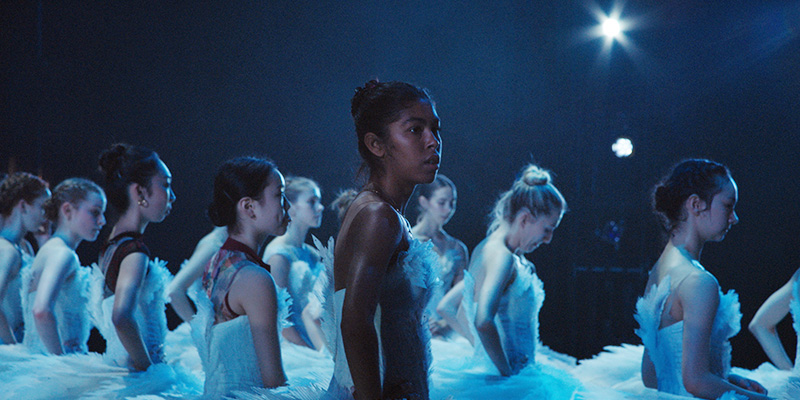
Not since Robert Altman’s The Company and Darren Aronofsky’s Black Swan has a movie about the production of a ballet performance been captured as wholly and entirely as in director Chelsea McMullen’s Swan Song. The difference in McMullan’s film is that Swan Song is not a dramatization but an actual drama. McMullan focuses on the National Ballet of Canada’s production of Swan Lake, as directed by former principal dancer Karen Kain. Folded into this is a reminder of Kain’s indelible effect on Canadian dance and a phenomenal history that seems ripped from the pages of a child’s fantasy diary. McMullen’s two previous films, My Prairie Home (2013) and Crystal Pite: Angelas Atlas (2022), also relate to performances and dance. Swan Song gives McMullen a larger canvas to work on, with a breadth of history that must have been overwhelming. And yet, Swan Song is shaped into a solid and straightforward narrative that invigorates the viewer with the passion and fears that can strike anyone, regardless of how high up the ladder they are. Swan Song is beautifully humbling—a masterclass in what it takes to survive and bring art to life.

My Animal is a pseudo-horror meets hockey, hormones, and a teenage werewolf movie that manages to be about something. Perhaps the most frightful thing about My Animal is the injustice of labeling its horror. Director Jacqueline Castel has made a family drama with leanings towards Ginger Snaps (2000) operating within a Let the Right One In (2008) vibe—think, The Addams Family conceived by Neil Gaiman. People will quickly note the excellent Bobbi Slavör Menuez as Heather, a hockey goalie, feeling both pangs and fangs: harbouring a first love while terrified of revealing the family secret. The adults are relegated to minor roles, with Stephen McHattie as the father, Henry, and Heidi von Palleske as Patti, the mother. Henry is borderline Atticus Finch, and Patti is full-on wasted. Brief references to the relationship between Henry and Patti speak to a better time. But with three children—Heather and the twins, Hardy (Harrison W. Halpenny) and Cooper (Charles F. Halpenny)—all werewolves, and Patti with the scars to show for it—is it any wonder Patti drinks? How easy it would have been to lead Patti into a field of drunken stereotypes, but von Palleske cultivates a genuine sadness. This is a strong woman who’s been broken. My Animal defies genre. See it for what it is: a creative, well-acted film that easily crosses genres and (dark) appeal.
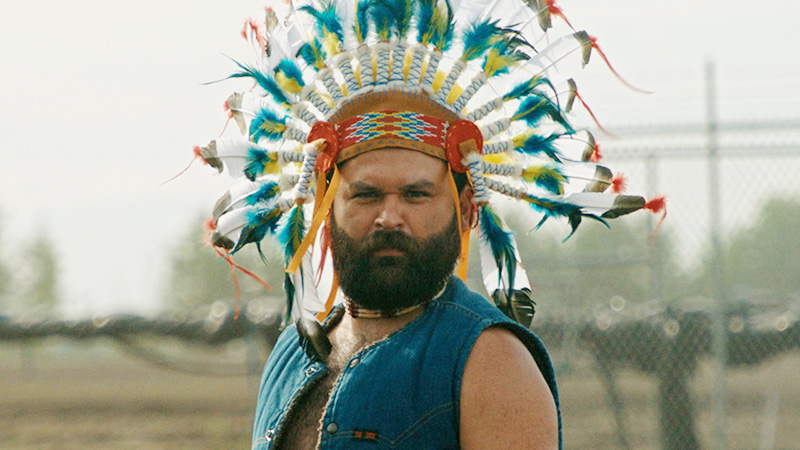
I love this movie. This is the story of actor Cody Lightning, who, as a child actor, was a standout in the film Smoke Signals (1998). Now, 25 years later, Cody is a somewhat delusional acting coach lost in past glory. He has a script for Smoke Signals 2 that he’s pushing without much success. A good part of the film is Lightning trying to get support for the movie by connecting with the players from the first film and mending fences with past relationships. Lightning is consistently hilarious, even in moments of self-reflection and despair. If you need contextualizing, you can think of Lightning as a Canadian version of Zach Galifianakis. Still, Cody Lightning is a man who stands on his own. Hey Vicktor! It is a must-see. And that’s why it’s the last film on this list: You can close your laptop or computer and watch Hey Viktor! NOW.
We have trailers for most of these films and you can see the posters in large format just by clicking on them.
![]() Thom Ernst is a Toronto based film critic and writer and an active member of the (TFCA) Toronto Film Critics’ Association. His work has appeared in various publications including Playback Magazine, The Toronto Star, and The National Post. He is known to CBC Radio listeners for his lively contributions to Fresh Air, Metro Morning, and CBC Syndication as well as appearing on-air for CTV News Channel and The Agenda with Steve Paikin. He was host, interviewer and producer of televisions’ longest running movie program Saturday Night at the Movies. Currently he can be heard interviewing Canadian filmmakers on the Kingston Canadian Film Festival podcast, Rewind, Fast-Forward.
Thom Ernst is a Toronto based film critic and writer and an active member of the (TFCA) Toronto Film Critics’ Association. His work has appeared in various publications including Playback Magazine, The Toronto Star, and The National Post. He is known to CBC Radio listeners for his lively contributions to Fresh Air, Metro Morning, and CBC Syndication as well as appearing on-air for CTV News Channel and The Agenda with Steve Paikin. He was host, interviewer and producer of televisions’ longest running movie program Saturday Night at the Movies. Currently he can be heard interviewing Canadian filmmakers on the Kingston Canadian Film Festival podcast, Rewind, Fast-Forward.


